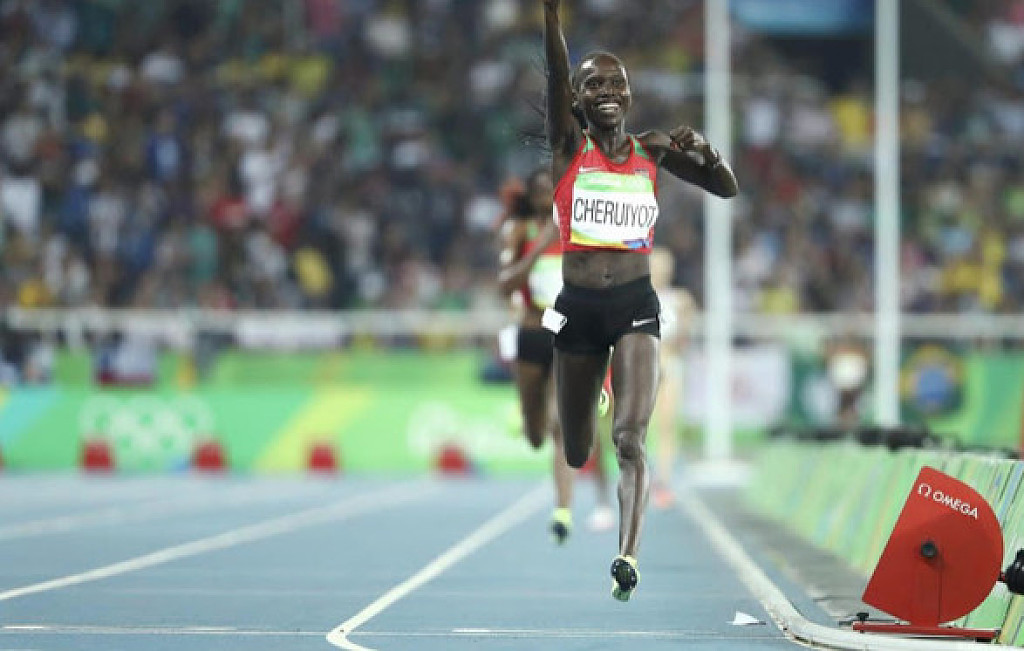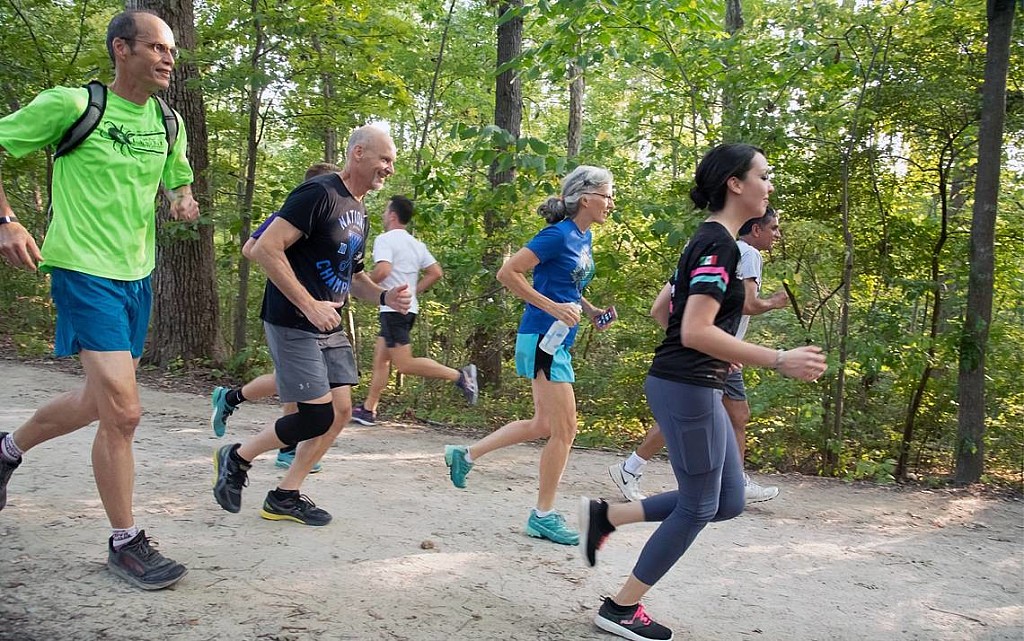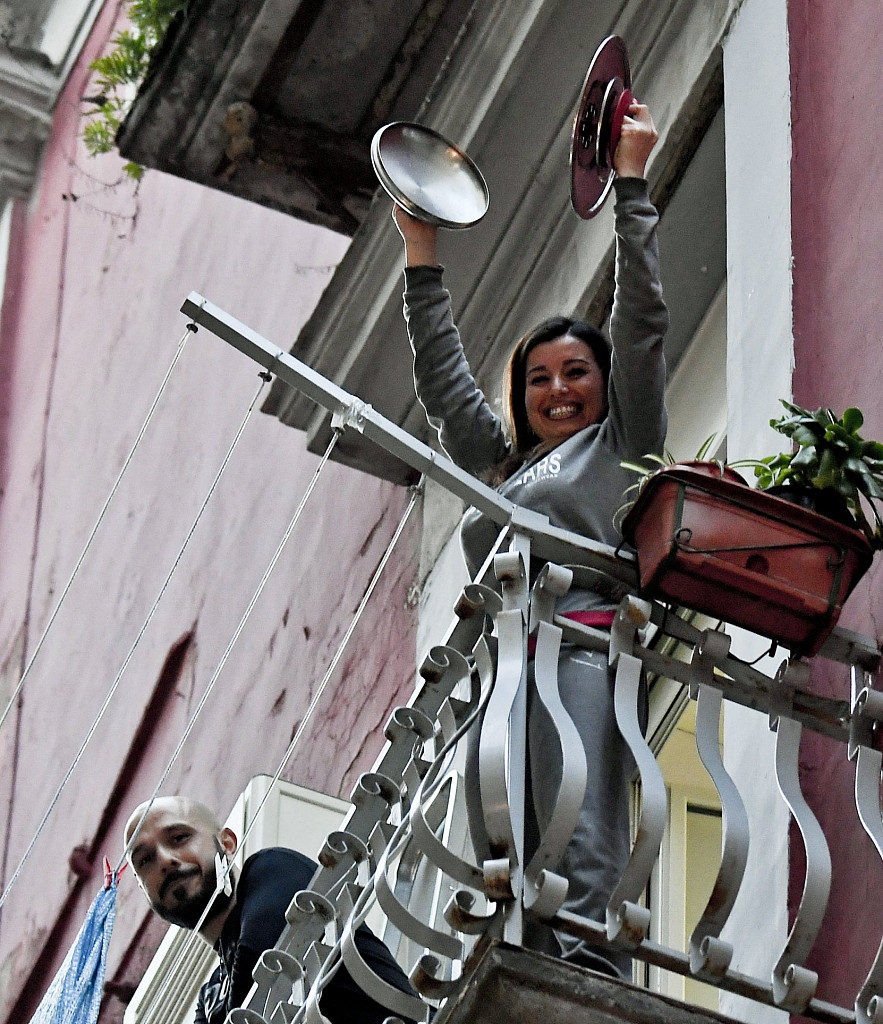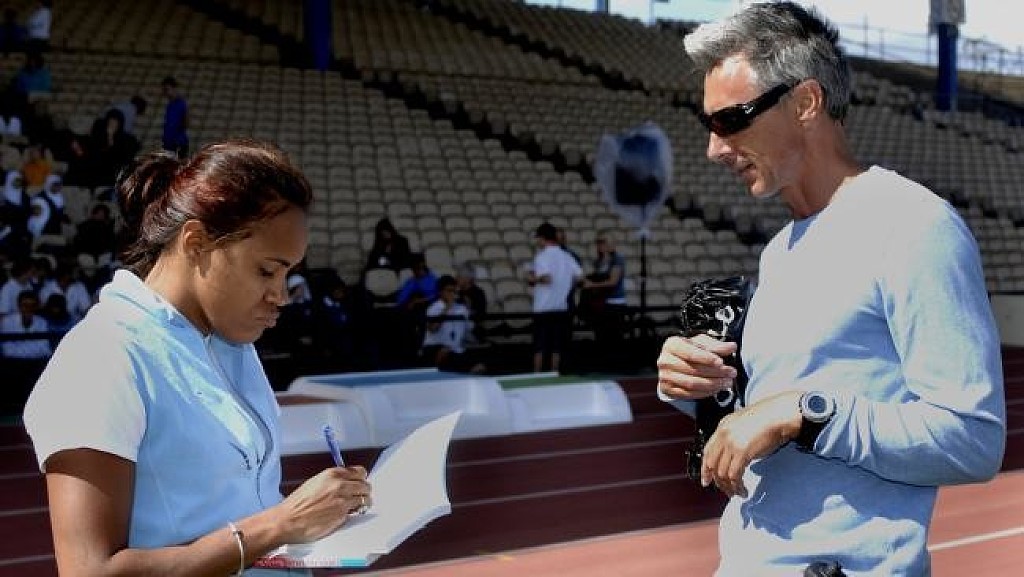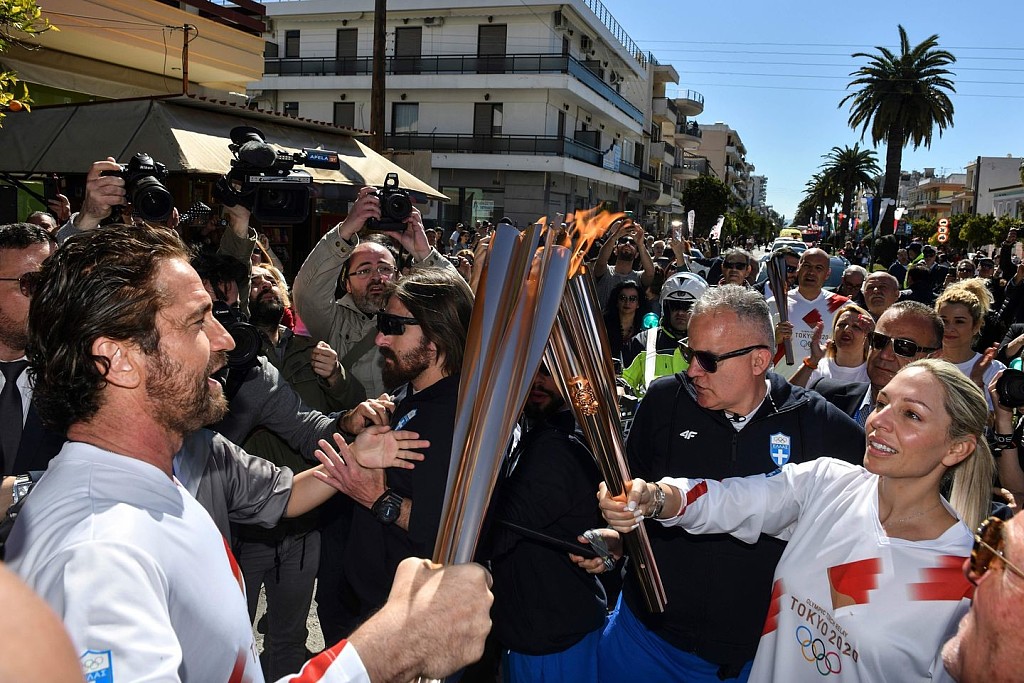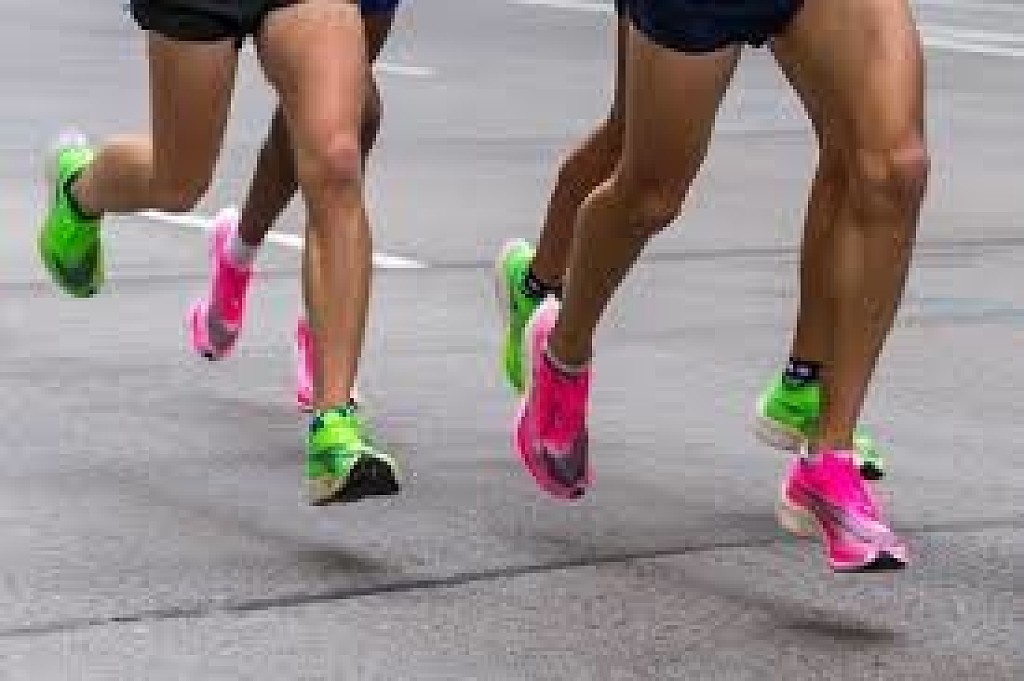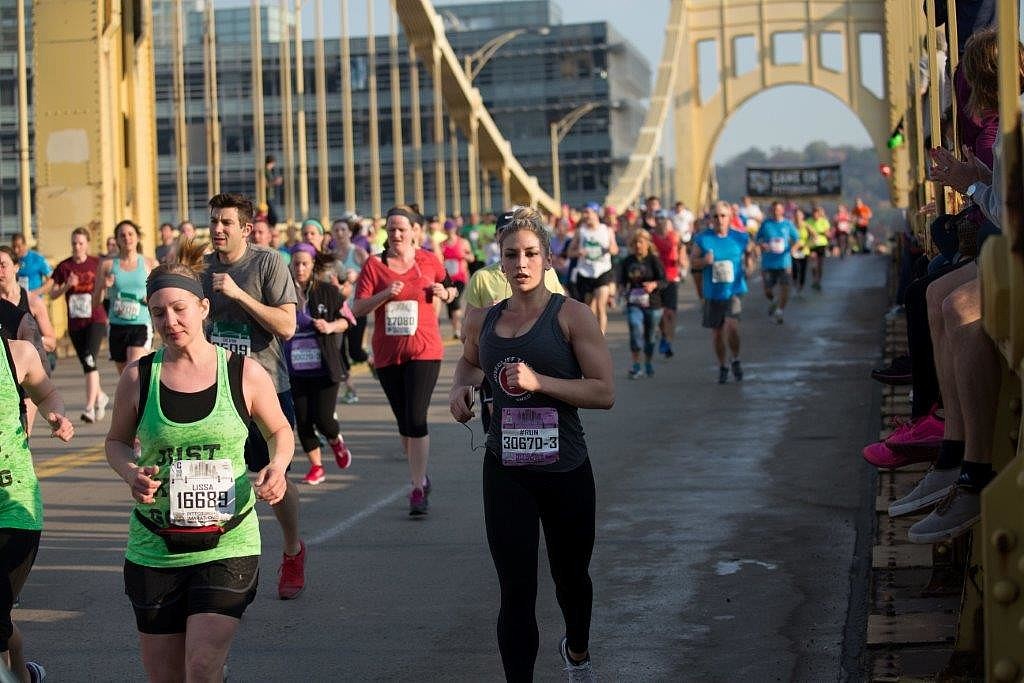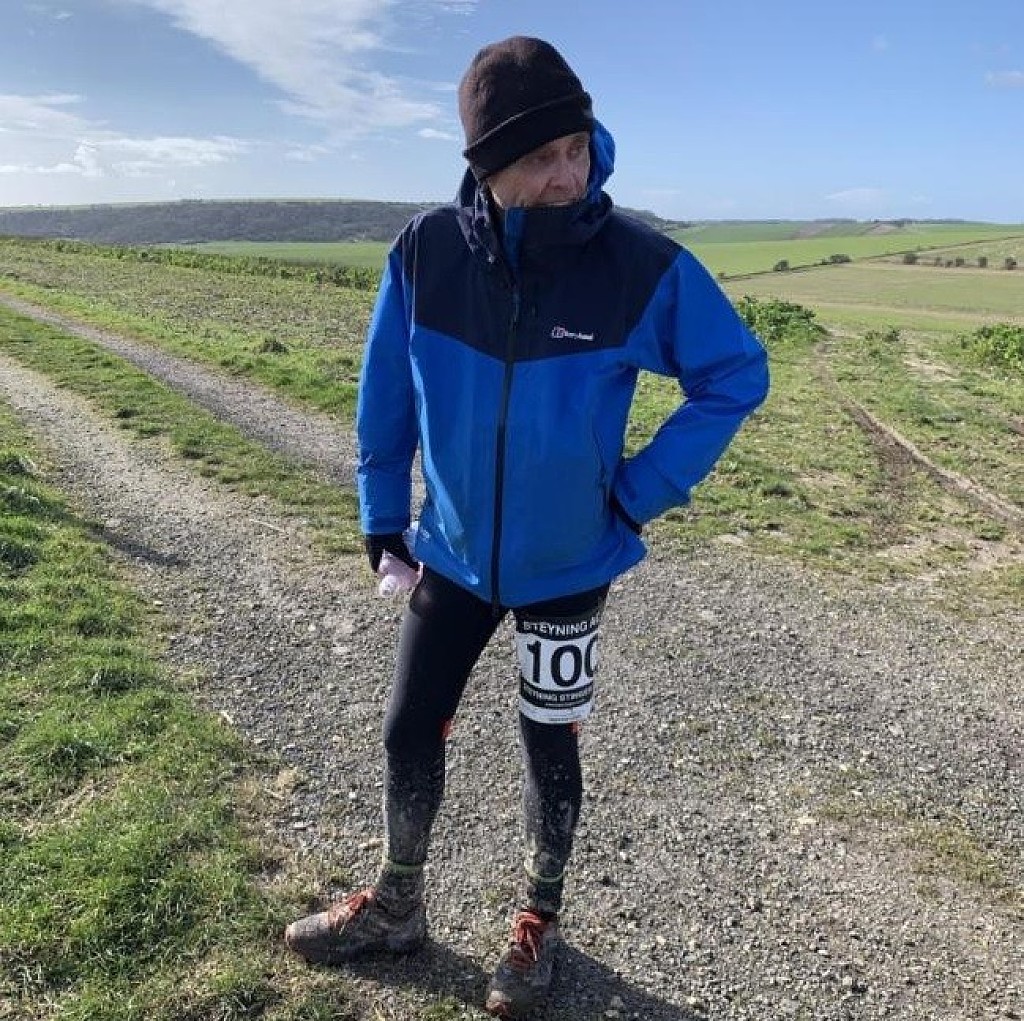Running News Daily
Top Ten Stories of the Week
3/21/2020
These are the top ten stories based on views over the last week.
I badly need an Olympic marathon gold medal says Cheruiyot
Heading into these two major races, I will be running as a typical Vivian and I have hope, determination and the zeal to do well — Cheruiyot.
• Arguably the most decorated Kenyan runner, Cheruiyot began her international career in 1999, when she won a silver medal in the junior race at the World Cross Country Championships in Belfast and a 3000m bronze medal at the World Youth Championships in Bydgoszcz.
Olympic 5,000m champion Vivian Cheruiyot has revealed that winning the marathon title at this year's Olympic Games in Tokyo will be the icing on the cake in an illustrious career spanning over two decades.
Cheruiyot, nicknamed ‘Pocket Rocket’ is also a multiple-time world champion on track and cross country but insists she has her work cut out in her chase for what she describes as her all-time career goal.
But before Tokyo, Cheruiyot is keen on defending her title at the Lisbon Half (March 21) and reclaiming her London Marathon title on April 26.
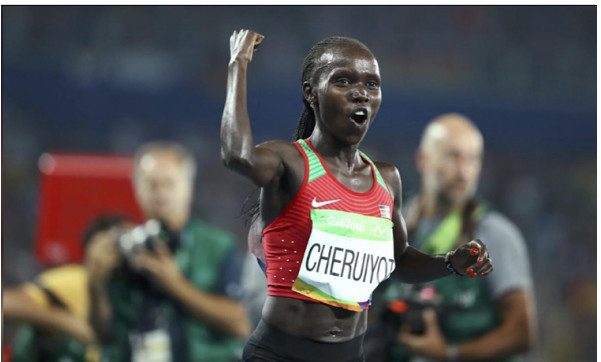
This, she says, will boost her confidence heading to Tokyo.
Speaking in Elgeyo Marakwet County during the Maria Soti Cross Country Championships 10 days ago, the two-time 5,000m and 10,000m world champion said she has been preparing well for the Games.
“Heading into these two major races, I will be running as a typical Vivian and I have hope, determination and the zeal to do well,” said Cheruiyot.
“I will be defending my Lisbon title as a precursor for the London Marathon. I also have a big task ahead of me, that of representing my country Tokyo, where I also hope to win my second Olympic title.”
Arguably the most decorated Kenyan runner, Cheruiyot began her international career in 1999, when she won a silver medal in the junior race at the World Cross Country Championships in Belfast and a 3000m bronze medal at the World Youth Championships in Bydgoszcz.
Since then she has won numerous accolades at the African Championships, Commonwealth Games, World Championships, Olympic Games and World Marathon Majors.
“The journey has been good and I want to do better than I have ever done. I want to promise Kenyans a good fight in Tokyo,” added Cheruiyot.
Following her dominance on the track, she announced in 2016 that she had quit track to concentrate in marathon and road races, which it has been successful.
After graduating to the marathon, Cheruiyot won London Marathon in 2018 before finishing second behind Mary Keitany in 2019. She also grabbed a second-place finish at the 2018 New York Marathon.
(03/16/20) Views: 724How to continue with your running routine if your spring marathon got cancelled
Many runners are expressing concern about their exercise routine amidst the rapidly spreading coronavirus. The virus has caused most spring marathons to cancel, countries to quarantine and the stock market to tank. But should runners also stop their routine to save their immune systems? The answer, according to several studies, is no.
If you’re an avid runner.- Competitive athletes, according to a 2014 study out of the Journal of Sports Science Medicine, report very low numbers of sick days. A study that examined 11 endurance athletes (including distance runners), found that their immune systems weren’t taxed by their routine, but rather, improved.
If you’re an avid runner who’s accustomed to working out frequently, keep doing what you’re doing. Limiting your running routine isn’t proven to strengthen your immune system. As with all things, take sensible hygiene precautions like avoiding sick teammates, and—this should go without saying—snot rocketing mid-workout.
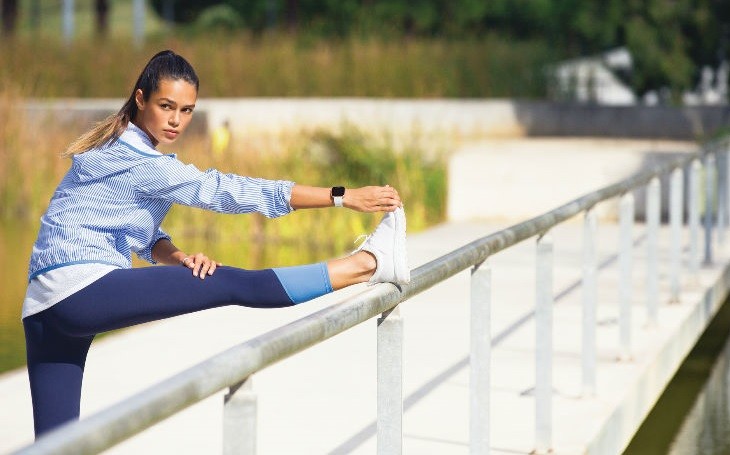
If you’re a new runner.- If you’re new to running, avoid ramping up your training but also don’t cut it out entirely. Researchers have found that it “is a misconception to label any form of acute exercise as immunosuppressive, and, instead, exercise most likely improves immune competency across the lifespan.”
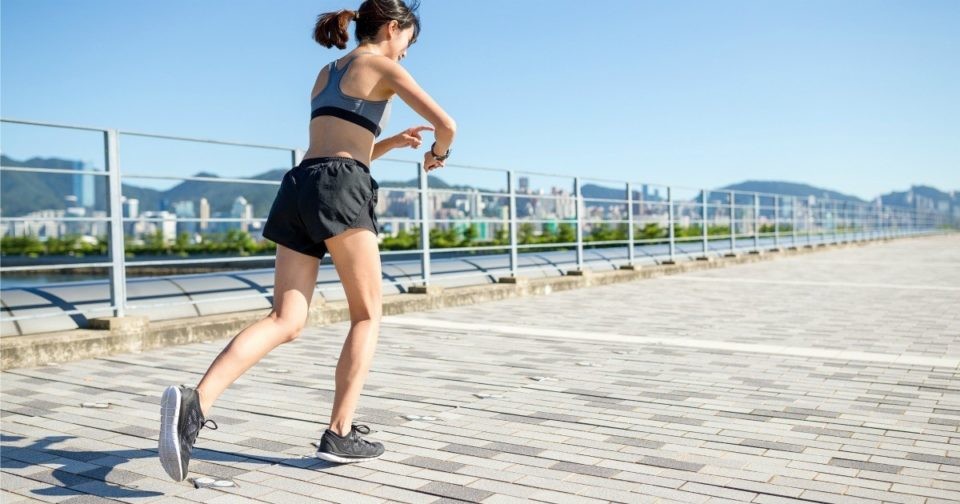
There are some studies that suggest a particularly strenuous workout can temporarily deplete the immune system, which is only to be avoided if it hasn’t been in your routine previously.
If you’re not a runner.- If you’re not a runner, chances are low that you’re looking at starting up a new routine right now. However, if you can, consider an at-home workout routine to stay moving without overly taxing your system. The Journal of Sport and Health Science suggests that with more people working from and remaining at home, there’s a risk of sedentary lifestyles contributing to worsened health conditions.
If you have a stationary bike at home, ride it. If you have a treadmill at home, use it. Even if it’s walking the stairs or lifting some light weights, do your best to keep moving.
(03/13/20) Views: 527
Madeleine Kelly
Running During the Lockdown in Italy
From their balconies each day, Italians are collectively demonstrating solidarity during the COVID-19 nationwide lockdown: at noon with a heart-felt applause for health care workers, and again at 6 p.m. with a sing-along that features a different song each day.
This has become a sort of balcony block party in my apartment complex, where everyone lets loose in a liberating moment of responsible social togetherness, blasting music from speakers, banging on pots and pans, blowing a horn, greeting neighbors across the way, whatever it takes to make the day feel a little bit more normal.
Italian runners on the other hand, are anything but united, divided on the appropriate behavior to take during the lockdown and whether running is a valid reason to go outside, like shopping for food, or walking the dog, or simply a selfish act that puts others as well as themselves at risk for contracting the virus. Under the current decree, anyone who leaves their house for whatever reason is supposed to carry a “self-declaration” form prepared by the government, that states why you are leaving your house. Police are on the streets stopping people, asking why they’re out and liars face fines and jail time.
While running or going out for a walk or bike ride is not prohibited under the current law if it is done alone and not in a group, many, including other runners, are saying that those who want to go out for their daily run or workout should put their own pleasures aside and stay inside, a small sacrifice to make for the well-being of the country. The runners still getting in their miles have argued that there is no more risk of them running alone than the there is of the person who goes out to buy cigarettes or to the person who goes to the supermarket more than once in a day to buy food or a favorite snack.

Running in the time of COVID-19 is seen by many as frivolous even though the medical experts say that physical activity increases endorphins which help to reduce the stress that many are feeling now.
Before the nationwide lockdown went into effect on March 10, 2020, signs were already there that the running life we know and love it in Italy was about to change. At the end of February, the National Indoor Masters Championships scheduled to be held in Ancona, was abruptly canceled days before the start, followed by many road races including the famous Huwai Roma-Ostia Half Marathon scheduled for March 8, the race that Galen Rupp won in 59:47 in 2018. While tracks in Rome were still open, there was uncertainty as most races on the calendar were being annulled, until the lockdown went into effect and definitively suspended all sporting events - professional and amateur - and shut down gyms, pools and other places of congregation, including the parks of Rome, until further notice.
Runners who had been training all winter for indoor championships as well as for spring races, both on the track and off, suddenly found themselves without their goal race or other arena to test their fitness.
Marathon runners in the eternal city were only three weeks away from the start of the Run Rome Marathon, when it too got postponed to a later, as yet undecided date. The problem for these runners is finding another marathon as most European spring marathons have all been canceled or postponed as well.
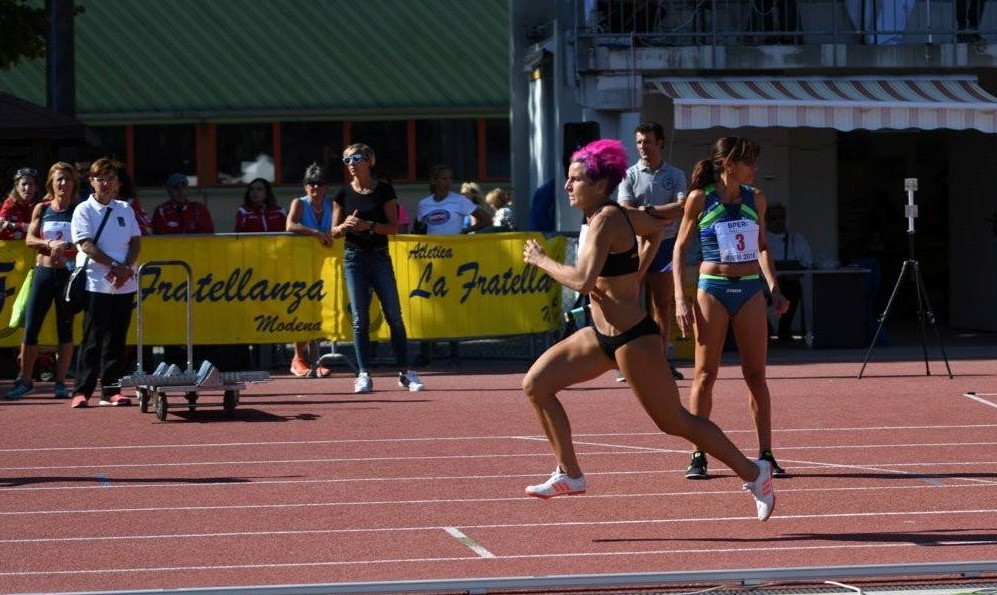
Paola Tiselli (third photo), 46, an international level master’s runner, specializing in the 800 and 1500 meters and current Italian age-group record holder in the 1000 meters indoor (3:01:14), said that she had been training all winter for the Italian and European indoor championships, which have now both been canceled.
“I’ve returned to the preparation I was doing about two months ago to stretch out the (training) time”, said Tiselli on how she has had to reorganize her training in view of the fact that there are currently no races on the immediate calendar.
She’s added more strength training sessions to her usual routine of twice per week and has added longer hill repeats – up to 300 meters – as well as an occasional long run of 12/13 kms, interspersed with faster intervals, something that she had eliminated as she was focusing on the 800 meters for this indoor championships.
“In this period of emergency and with all of the races canceled, I’ve re-formulated my preparation with a goal of (maybe) the Italian Masters Relay Championships in July in Catania and the World Masters Athletics championships” at the end of July in Toronto, Canada. “So, let’s say that I’m practically back to a winter preparation”.
Anna Micheletti (second photo), 67, another age-group record-holder with numerous Italian and European titles from 100 meters to 400 meters, echoes Tiselli’s current training focus, adding that it’s not easy in the lockdown but it can be done.
“At home we’re (she and husband, sprinter Claudio Rapaccioni) trying to maintain the workouts. For us sprinters that means to maintain the strength in our legs, with exercises” adding that as a former middle-distance runner “if you don’t also maintain your resistance you won’t be able to run, in my case, a 400. It becomes impossible”.
Micheletti, President of Romatletica Footworks, the current Italians women’s masters team champions, is doing many of her workouts at home and on the grounds of her condominium and avoids contact with others as best as she can.
“We all have to try and do everything that we can to maintain the shape we’re in and we should keep up our activity, with respect for others,” she said referring to current running norms adding that “unfortunately this is something that we’re missing in our society”.
Rita del Pinto, the sprint and middle-distance coach of my team, Liberatletica, of which Tiselli is also a member, recommended her runners to follow a circuit training program that they can do either outside or in, depending on their circumstances.
“The sprinters repeat the program twice, while the middle-distance runners should repeat it three or four times” said del Pinto, who oversees the training of many of the top masters’ sprinters in the country.
For the moment, though, each runner must decide what the best way to stay in shape is for the races they hope to run when life in Italy returns to normal.
In the meantime, we’ll all put our different opinions to one side and enjoy the music from our balconies!
(03/17/20) Views: 294carla Van Kampen (in Rome)
Lead Australian athletics coach Nic Bideau, thinks Olympics will be postponed
A senior Australian athletics coach believes the Olympics will be postponed because thousands of top athletes have been unable to properly prepare for the Games, as the coronavirus pandemic causes lockdowns around the world.
Thousands of the best athletes around the world will be unable to compete to qualify for Olympic teams, with athletics Diamond League meets poised to be cancelled due to restrictions on mass gatherings. European and American national titles are also in doubt due to the same crowd restrictions put in place during the coronavirus pandemic.
Lead Australian athletics coach Nic Bideau, who trains some of Australia's best middle distance runners, said many of the big countries in athletics were doubtful of being able to select teams under the normal qualifying system.
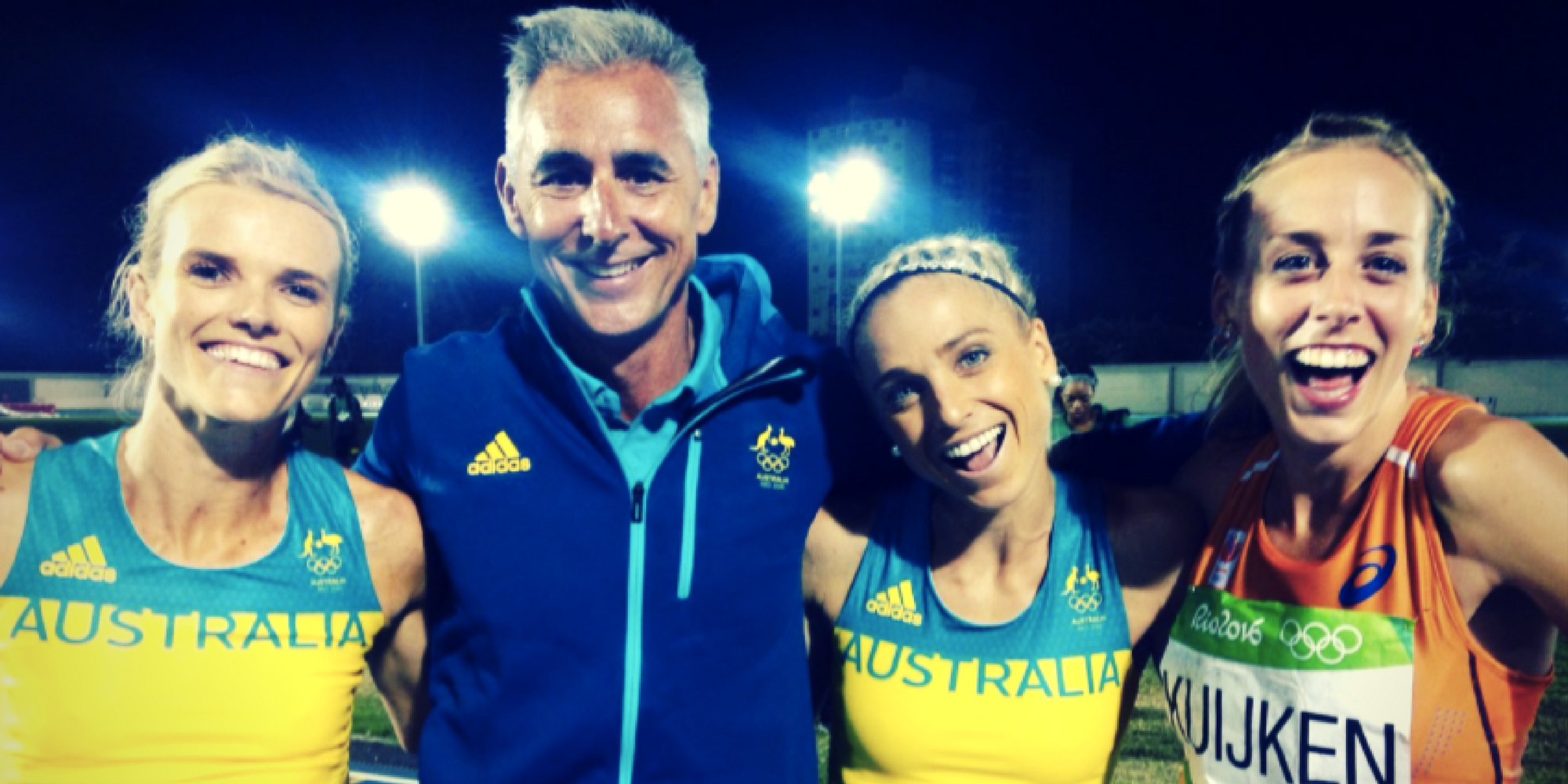
Bideau said that regardless of whether Japan recovered enough to host the Games, whether countries would have teams to send should be a compelling consideration for organizers.
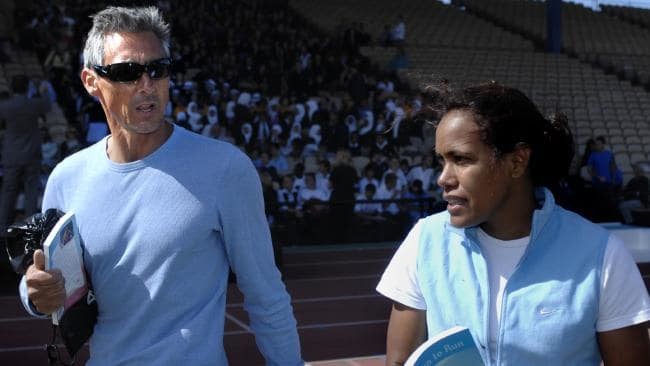
"At the moment the situation is getting worse, not better [in the US and many countries in Europe] so those events will be unlikely to go ahead," he said.
"The big countries won't have teams to send. I think they will end up having the Games pushed back 12 months rather than cancelled. The small sports need the Olympics for profile and money coming in, they can't survive without the Olympics, so I think they will push it back 12 months."
There has been discussion in world athletics of abandoning the regular qualification process and just issuing quotas to countries to nominate a number of athletes.
But while nations in the southern hemisphere, such as Australia and South Africa, might be able to nominate teams because they have just completed domestic summer seasons, most European countries and Canada and the US have not. The latter group has also not had athletes hit qualifying standards.
"We could pick our team from qualified athletes and world rankings and so could South Africa but at the moment people are not thinking about that [qualifying for Olympics], they are thinking what will happen with the world? Is it worth thinking about playing sport and running competitions when this is happening?
"Everyone is marking time for a month, training a bit, and hoping that events can be held in June in Europe and the US, but it unlikely those events can be held."
The US Olympic track and field team is picked only from athletes who finish first, second or third at the US Olympic trials. To be on the team you must compete at the trials, but if the trials are not held then as it stands now, it would be impossible to pick a team.
(03/18/20) Views: 263Michael Gleeson
Italy in Lockdown mode: Day 3
As we enter Day 3 of the nation being essentially “Chiuso” or closed, many things have changed, especially the social habits that make Italy, Italy.
As of this writing, there have been more than 1,000 deaths caused by the virus and more than 15,000 cases of people who have tested positive for COViD-19 in Italy
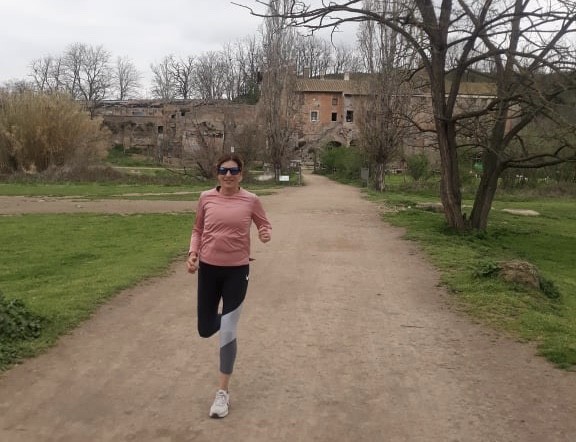
As a response, the Prime Minister of Italy Giuseppe Conte announced on March 10 that the country will take drastic measures in the fight against the virus by virtually locking down the country.
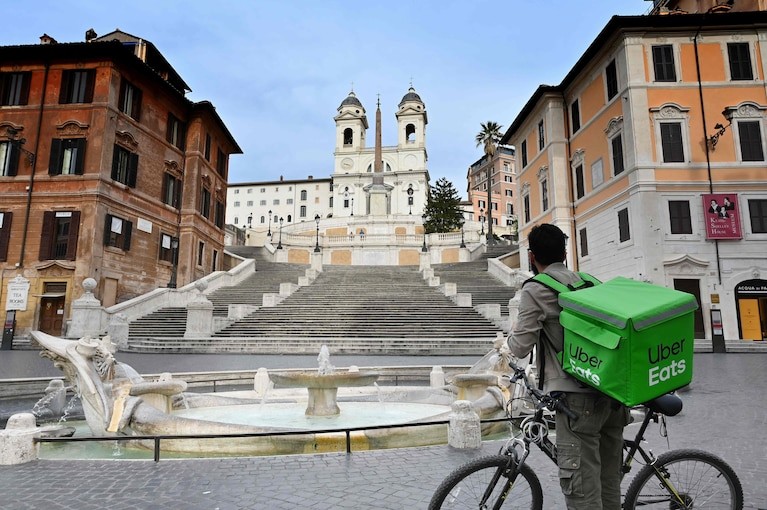
That morning coffee at the bar or aperitivo with friends after work doesn’t exist anymore because all eateries have been closed; church mass has been suspended because people can’t congregate in close quarters; shops except for supermarkets, pharmacies, hardware/computer stores are all closed.
If you take your car from one place to another, or even walk on the streets, you may get pulled over by the police and asked to show a self-declaration that states you are out because you are going to work or to a medical appointment or for some other necessary movement. If you lie, you could face a fine or jail time.
And perhaps the most dramatic of all for Italians, all professional soccer matches have all been momentarily cancelled, leaving the Italian championship title for 2020 at risk.
Supermarkets are open but in the past three days, long lines have formed outside as people are panic buying because it is not clear how long the lockdown will last. A population that has never respected lines, now respectfully wait their turn in line, wearing masks and obeying the recommended one meter of distance that should be kept from person to person.
The big question for runners this past week has been whether their daily run is considered a non-essential activity that could get them fined, as running on the roads or parks is the only alternative since all tracks and other sports venues, gyms and pools have been closed until further notice.
NOTE: Special exception has been given to Italian athletes training for the Olympics or hoping to make the national team.
Italian runners on social media have been split over whether running during the lockdown is socially responsible or not.
Others seem to think that it is a healthy outlet for being locked indoors most of the day with little else to do. But there hasn’t been a clear, official voice until yesterday, when several authorities explained that yes, it was okay to go running, if you go by yourself, or at the most, with another person, always respecting the one meter of distance.
Rome is lucky to have a few very large parks – Villa Borghese, Villa Pamphili and the Caffarella – where it is easy to run in practical anonymity. On Sunday morning and Tuesday midday when I went to the Caffarella to do my workout, it was full of people out for a run or walk, soaking up the sun of a spring-like day in Rome. But this was before the lockdown.
On Wednesday morning, I went for an early morning run at a favorite park behind the San Paolo Basilica in my neighborhood and it was relatively empty, maybe for the time of day, maybe because people still didn’t understand what they could and couldn’t do.
Seeing people out running, cycling, walking and just out doing their thing, responsibly, on a beautiful day, seems to be the best medicine against the increasingly negative news of this virus.
Second photo Carla getting in a run.
(03/13/20) Views: 248Carla van Kampen reporting from Rome
One day after flame was lit, Greece suspends Olympic torch relay because of coronavirus
The Greek Olympic Committee suspended the remainder of the 2020 Tokyo Olympics torch relay through the country on Friday due to concerns about the coronavirus outbreak. The decision came one day after the flame was lit before an unusually small crowd of accredited guests in Ancient Olympia, where the Games originated.
Amid growing fears about the coronavirus, the torch-lighting ceremony, which dates from 1936 and normally draws thousands to the Temple of Hera, was held without spectators lining the slopes of the tiny town for the first time since the 1984 Los Angeles Olympics. Greece reported its first fatality as a result of the coronavirus Thursday.
The Greek Olympic Committee said that Friday’s leg of the relay, which featured actor Gerard Butler carrying the torch through the town of Sparta, attracted unexpectedly large crowds. The handover of the flame to the Tokyo 2020 organizing committee in Athens on March 19 is still scheduled to take place, without spectators.

Japan’s leg of the relay is scheduled to begin March 26 in Fukushima Prefecture, which was ravaged by an earthquake, tsunami and nuclear accident in 2011. After traveling through all 47 of Japan’s prefectures, the flame is due to arrive in Tokyo 121 days later for the Opening Ceremonies on July 24.
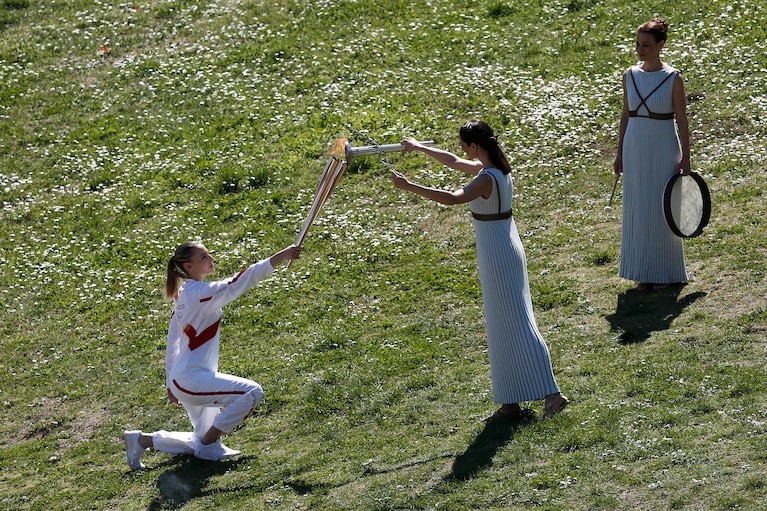
Greek actress Xanthi Georgiou used a parabolic mirror to ignite the torch on Thursday before handing it to Greek Olympic shooting champion Anna Korakaki, who became the first woman to be the first torchbearer of the torch relay. The gold medalist at the 2016 Rio Games then passed the flame to Japan’s Mizuki Noguchi, who won the gold medal in the marathon at the 2004 Athens Games.
Even as the spread of the coronavirus has led to the cancellation and postponement of sporting events across the globe, International Olympic Committee officials have been adamant that the Tokyo Games will take place as scheduled. The IOC said it intends to follow advice from the World Health Organization.
In a speech at Thursday’s ceremony, IOC President Thomas Bach thanked organizers, including the Greek Olympic Committee, for making the event possible “under difficult circumstances.”
“This demonstrates once more our commitment to the success of the Olympic Games Tokyo 2020,” Bach said. “Nineteen weeks before the Opening Ceremony, we are strengthened in this commitment by the many authorities and sports organizations around the world who are taking so many significant measures to contain the spread of the coronavirus."
(03/13/20) Views: 226Scott Allen
How Running Boast Your Immunity
Exercise physiologist David Nieman has spent the last 40 years studying links between exercise and immunity. It’s not a new field. But with the increasing rate of race cancellations and general concern around the global COVID-19 coronavirus outbreak, plenty of runners have found themselves wondering whether their intense training is helping, or hurting, their health.
Exercise studies show that regular, modest exercise boosts immunity, and lowers your risk of infection. That’s the good news—and the reason so many scientists believe that running and other regular exercise is a healthy, body-strengthening activity.
On the other hand, hard, continuous, long-effort exercise like marathons and ultra marathons can lower your resistance for 24 to 72 hours, and lead to increased colds and respiratory illnesses for a week or two. Too much exercise volume and intensity turns the corner on what experts refer to as the J curve—and your risk of infection goes up.
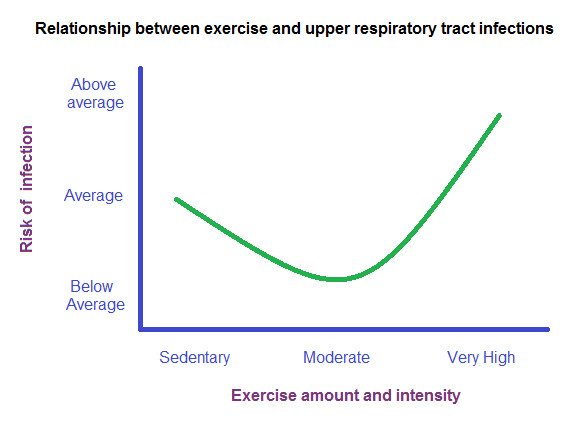
Case in point: Nieman and colleagues recently measured the immune response of Antarctic trekker Colin O’Brady, who in late 2018 became the first person to cross the continent unassisted, covering 930 miles in 54 days. The research team found that O’Brady entered a state of “dysfunctional immune response” that was most severe during the last month when his “energy expenditure was highest, body mass was reduced, and training distress was most severe.”
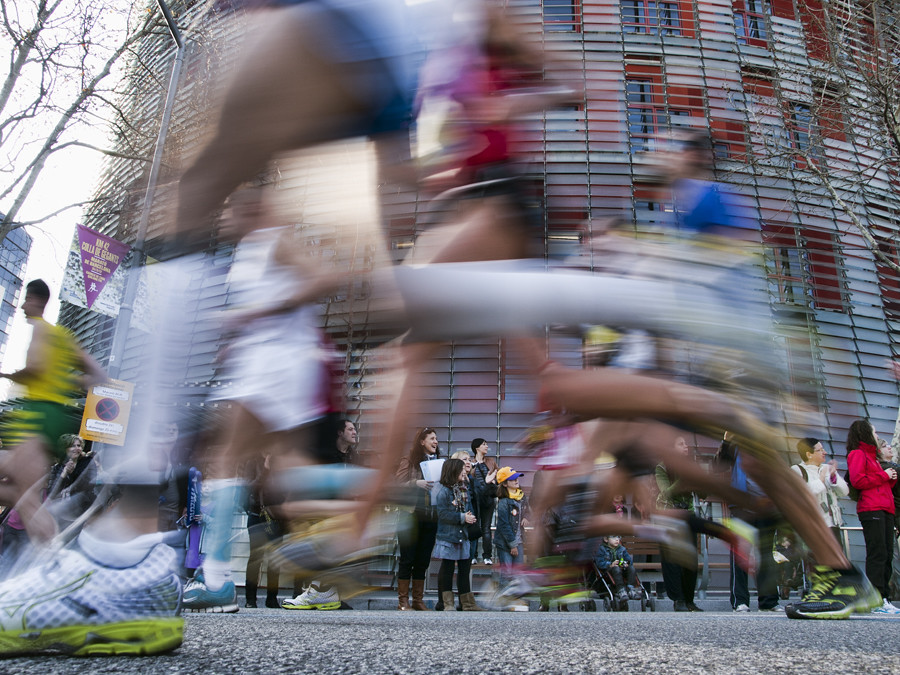
In his famous exploration of immunity at the Los Angeles Marathon, Nieman found that runners who had been training 60 miles a week or more had double the post-marathon infections of those training under 20 miles a week. Overall, marathon finishers had six times more infections and respiratory illnesses post marathon than a control group of non runners. This lowered immunity was transitory, meaning it didn’t last long, but it was significant enough to produce more post-marathon illness.
Train Smarter, Not Harder.- When it comes to training, more is not always better. For the biggest immunity-fighting response, Nieman suggests following this handy, easy to remember rule of thumb: Run less than 60 miles a week, mostly at a low intensity (60% of max VO2 corresponds to 75% of max heart rate), mostly in workouts that are less than 60 minutes at a time.
Nieman and colleagues have been surprised by one of their consistent findings. While long, hard runs seem to lower immunity, the same is not true of long, intermittent runs. In other words, a long marathon-pace run is a stressor, but if you follow a run/walk approach or even 10 minutes hard/10 minutes easy, you reduce the lower-immunity threat. “When you do a back-and-forth kind of running, your body seems to react in a favorable way, like you’ve just been out for a walk,” Nieman observes.
Eat to Boost Immunity.- Nieman believes the key nutrient that bonds exercise and good health is carbohydrates: before, during and after running. In fact, he notes a whole new science of immuno-metabolism that puts glucose and glycogen in the center of healthy immunity, just like they are in endurance running.
By measuring glycogen in immune cells, Neiman has discovered that a three-hour run (with no carb intake) depletes those cells just as it depletes your leg muscles, and the immune cells become noticeably dysfunctional. You could say they bonk. When runners consume carbs during the same run, their immune cells “look and perform much better,” says Nieman.
Beyond carbs, you might also want to stock up on blueberries. Nieman has long been interested in polyphenols, flavonoids and other food substances that support immunity. In a soon-to-be-published paper, he explored the effects of blueberries on immunity and inflammation after a three-hour laboratory run. One group of runners ate a daily cup of blueberries for two weeks before the lab run. Another group didn’t. “The blueberries knocked down the pro-inflammatory response by a lot,” he says, noting that this group of runners also had less muscle soreness.
While he has investigated other frequently-mentioned approaches like vitamin C and probiotics, he finds little evidence that they make a significant contribution to immunity. In Nieman’s world, if you’re consuming healthy carbs and blueberry-like, flavonoid-rich foods, you’re about 90% down the road to an immunity-boosting diet.
In a 2019 paper published in The Journal of Sport and Health Science, “The compelling link between physical activity and the body’s defense system,” Nieman and Laurel M. Wentz suggest several other simple and effective immunity-enhancing strategies that runners can follow all the time:
Develop a specific training plan built around ample recovery, sleep and possible mental stressors.
Don’t do individual workouts or weekly total workouts significantly harder than you’ve been doing.
Monitor yourself closely for early signs of illness and/or overtraining, and adjust accordingly.
Skip the gym with its crowds and potential pathogens. Run outdoors.
Avoid excessive alcohol intake.
Adapt stress management strategies to control for life’s hassles.
(03/16/20) Views: 185Amby Burfoot
28 of Top 30 Men at Tokyo Marathon Used Nike's Latest and Previous Platform Shoe Models
Nike's recent generations of thick-soled platform racing shoes swept the 2020 Tokyo Marathon, with 28 out of the top 30 placing men wearing them, including international entrants. Of these, 9 including new Japanese national record holder Suguru Osako (Nike) wear wearing the new Air Zoom Alphafly Next% model with a 3.95 cm thick sole complying with new regulations from World Athletics. With 10 Japanese men running under 2:08 in a single race for the first time in history, all 10 were wearing models of the platform shoes.
Despite a mix in choice of models, the shoes dominated the market in the race. One after another, thick green, black, pink, and green and orange shoes crossed the finish line in Marunouchi, Tokyo. From winner Birhanu Legese to 30th-place Shuho Dairokuno, 28 men had the Nike shoes on their feet. The other 2 were wearing Adidas and Asics. Wearing the latest model of the Nike shoes for his latest national record, Osako said, "Every race feels different afterwards. It's hard to say how much of a role the shoes played, but being able to take advantage of Nike's latest technology is a strength for us."
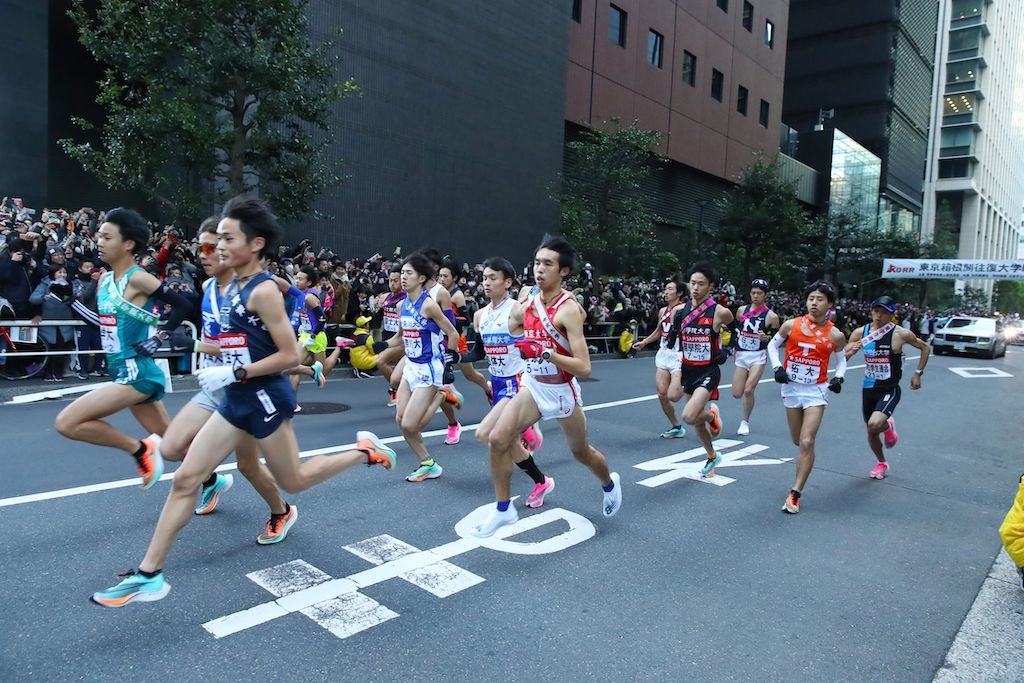
On Jan. 31 World Athletics established a new rule setting the maximum shoe sole thickness at 4 cm. On Feb. 5 Nike unveiled its new model with a thickness of 3.95 cm. With the shoes going on sale in Japan, the Tokyo marathon represented their Japanese debut.
Switching from the previous model to the new one for this race and finishing 27th in 2:09:41, Kenji Yamamoto (Mazda) commented, "My left foot starting hurting at 10 km, and something felt wrong. In the second half my legs felt like sticks, but I still felt like I was getting a lot of assistance. Somehow I still managed to squeeze out a sub-2:10. The rebound in these is amazing." Comparing them to the previous model he wore at last fall's MGC Olympic trials race he said, "The softness is completely different. When you step in them it feels like you're on top of a balance ball, and you get a real feeling of rebound."
There's no denying that the hard work and dedication that athletes put in on a day-to-day basis plays the biggest role in their success, but it's equally true that the last few generations of these platform shoes were in the director's seat of a race that saw an unprecedented 10 Japanese men run under 2:08.
(03/14/20) Views: 179Japan Running News
Pittsburgh Marathon scheduled for May 3rd has been cancelled says the organizers
We regret to share with all of you that the DICK’S Sporting Goods Pittsburgh Marathon will not take place in 2020. We worked with our partners in the City of Pittsburgh, at UPMC, and the Commonwealth of Pennsylvania throughout this process; however, the City of Pittsburgh has — in accordance with guidance from the Centers of Disease Control and Prevention — banned all gatherings of 50 or more people during the eight-week period beginning March 15, 2020, in efforts to slow the spread of the COVID-19 virus.
We know that this is the right thing to do to ensure the safety of our participants, staff, volunteers, medical professionals, security personnel and spectators. We are heartbroken to have to cancel this year’s DICK’S Sporting Goods Pittsburgh Marathon weekend. Each year, more than 40,000 runners take to the streets of Pittsburgh — including kids as young as one year old to grandparents in their nineties, and each of you has a unique story to tell. We know that many of you started training even before January first and have put in months of effort to get to race day, and now that isn’t going to happen. We understand that you are disappointed, and we’re sure that many of you are upset that this is the outcome
(03/18/20) Views: 118Race Organizers
At the age of 70, grandpa Ralph Bernascone finished his 100th marathon on March 1
Ralph Bernascone completed a century of 26-mile runs at the Steyning Stinger on March 1, to the applause of his family who were there to watch.
“There’s nothing special about me,” said Ralph. “If I can do it, anybody can do it, it is just a question of giving it time and you will be able to do it too.”
Ralph, from Henfield, ran his first marathon in 2001 at the age of 51, completing the New York event six weeks after 9/11. “I started running in 1998 because I was drinking too much, smoking too much and my wife Dorrit was fed up," he said.
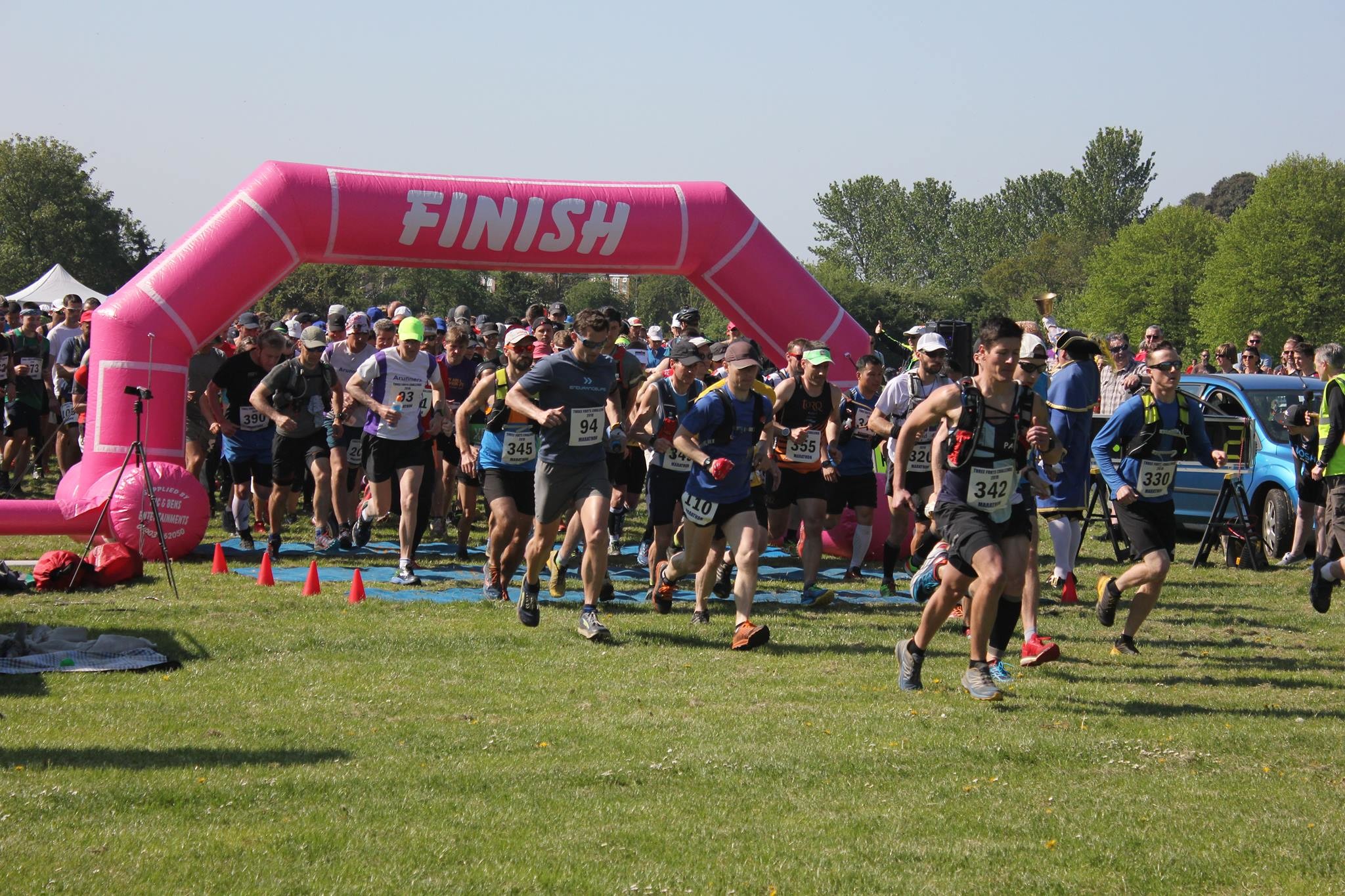
“There’s a local running club called Henfield Joggers, I joined them and gradually built up. You spend all that money getting to New York, that was the incentive, it was certainly not cheap.”
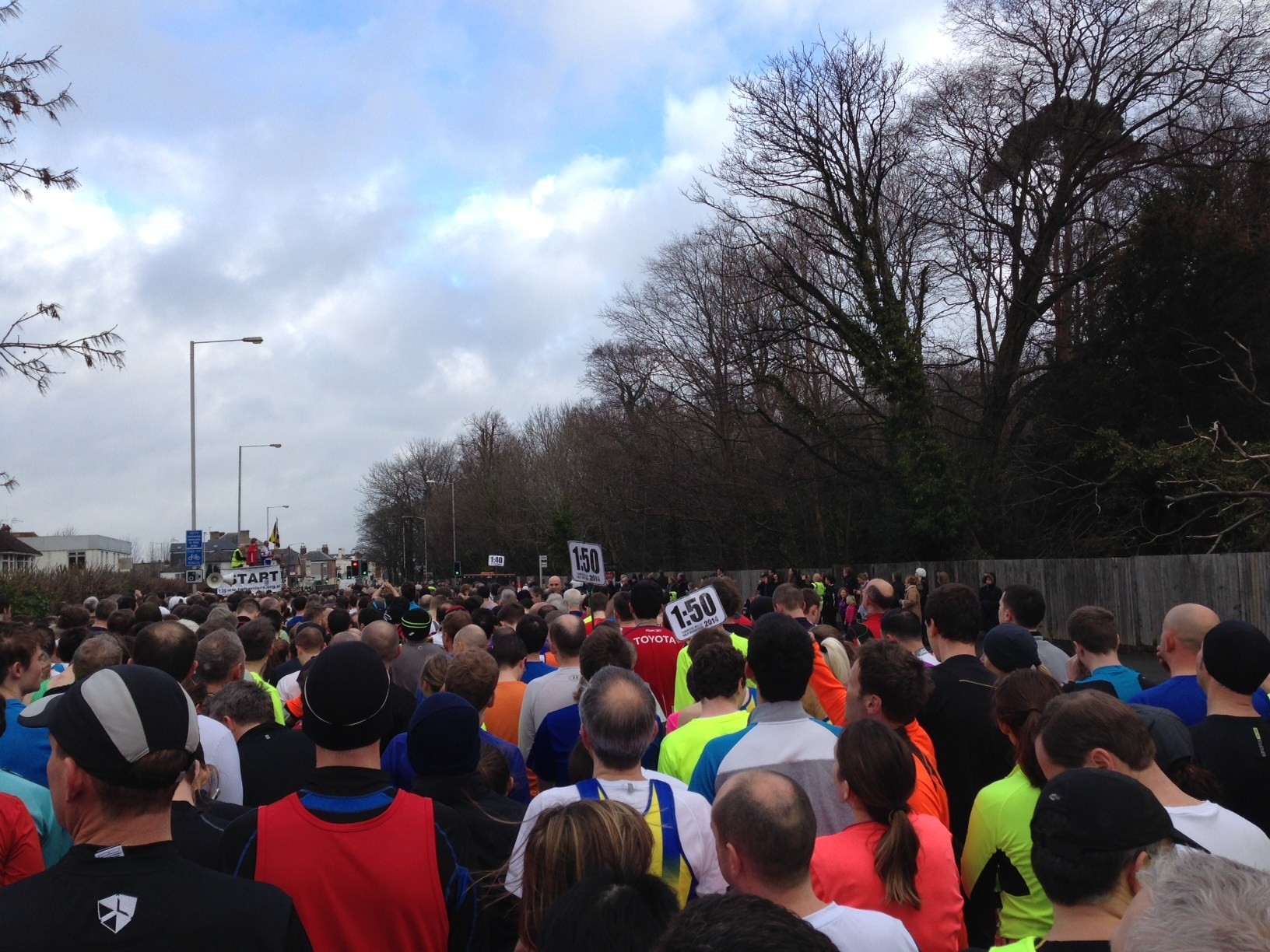
Since then, he has traveled the world running, from Norway to Dorking. “All of them have been memorable, I’ve enjoyed them all," he said.
“Reykjavic in Iceland was different – when you land it’s like Mars with all the craters.
“We did one in Marrakech. That was interesting as halfway around we had to stop as a caravan of camels were crossing. But I do think London Marathon is the best in the world.”
The septuagenarian, who still runs with the Henfield Joggers after 22 years, is not even the oldest in the group.
He is urging others to pick up a passion for jogging. “Try it, do it. One thing I can truthfully say is that I’ve never met a nasty runner – everyone is so nice and pleasant. It doesn’t matter how much money you have when you’re running up a steep hill, everyone is the same.
“All you need is some good running shoes for about £70 or £80. What’s that when a golf club costs £500?”
Ralph was cheered over the line of his 100th marathon by his daughter Karina Ray, 34, who lives in Shoreham.
She said: “I normally go to see him if it’s local and my husband has done the Brighton one with him before.
“On the day of the 100th, we were up there on the Downs with my husband and his two granddaughters.
“Steyning Stinger was a really hard one, running up the hills and it’s muddy. I’m pretty lazy compared to him.”
Henfield Joggers celebrated its 30th anniversary this year.
The first run as a club was on April 1, 1990, with six people taking part.
There are now nearly 130 runners “of all abilities”.
(03/19/20) Views: 111Jody Doherty-Cove


